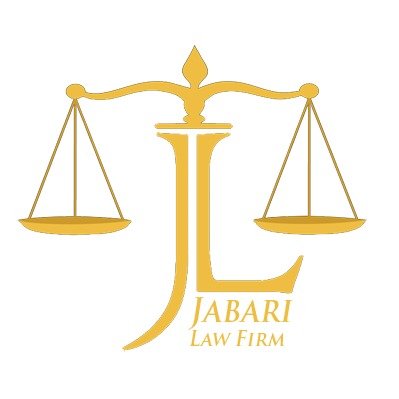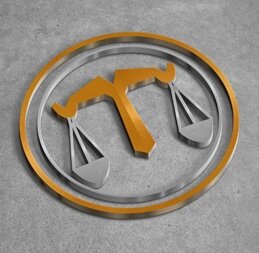Best Conveyancing Lawyers in Amman
Share your needs with us, get contacted by law firms.
Free. Takes 2 min.
Free Guide to Hiring a Real Estate Lawyer
List of the best lawyers in Amman, Hashemite Kingdom of Jordan

About Conveyancing Law in Amman, Hashemite Kingdom of Jordan
Conveyancing refers to the legal process of transferring property ownership from one party to another. In Amman, Hashemite Kingdom of Jordan, conveyancing is a vital aspect of real estate transactions, including the purchase and sale of residential, commercial, and land properties. The procedure involves a blend of legal, administrative, and financial steps governed by Jordanian property and real estate law. Proper conveyancing ensures that the interests of all parties are protected during ownership transitions and that the transaction complies with local regulatory requirements.
Why You May Need a Lawyer
Engaging a lawyer in the conveyancing process is highly recommended in Amman for several reasons. Legal professionals can help you:
- Navigate complex property laws and regulations unique to Jordan
- Conduct thorough title searches to ensure the property is free of encumbrances, liens, or disputes
- Draft and review legally binding contracts and agreements
- Advise on taxes, fees, and any applicable stamp duties
- Handle negotiations between buyers and sellers or resolve disputes
- Assist in transactions involving foreign nationals or corporations
- Facilitate the registration of property with local authorities, ensuring all legal paperwork is completed correctly
Without legal assistance, individuals may face potential legal risks or financial losses during or after the property transaction.
Local Laws Overview
Conveyancing in Amman is governed primarily by the Civil Law and various statutes specific to real estate in Jordan. Some of the most relevant legal aspects include:
- All property transactions must be registered with the Department of Lands and Survey (DLS), the official government body overseeing real estate registration.
- The seller must have clear and undisputed title to the property. Land records are maintained by the DLS and should be checked for liens, mortgages, or restrictions.
- Foreigners can own property in Jordan, but there are restrictions and additional requirements depending on the type, size, and location of the property.
- Property transfer requires drafting and signing a Sale and Purchase Agreement. This document details the terms, price, and transfer conditions and must comply with the requirements of Jordanian law.
- Both parties must pay the legally mandated transfer fees and, in some cases, taxes on the transaction value.
- Final transfer of ownership is only accomplished after registration at the DLS, at which point the buyer becomes the legal owner.
Frequently Asked Questions
What is the conveyancing process in Amman?
The conveyancing process typically involves the negotiation and signing of a Sale and Purchase Agreement, conducting due diligence, payment of fees and taxes, and registration of the property at the Department of Lands and Survey.
Who can legally own property in Amman?
Both Jordanian citizens and foreigners can own property in Amman, but foreign ownership is subject to certain legal restrictions and requires prior governmental approval in some cases.
Are there specific taxes or fees involved in property transfer?
Yes, property transfers in Amman involve various fees, including transfer taxes and administrative charges imposed by the DLS. The exact percentage may vary according to the property’s value and type.
How do I verify property ownership?
Property ownership can be verified through the official records at the Department of Lands and Survey, which maintain land and title records for all registered properties in Jordan.
Do I need a lawyer to buy or sell property?
While not legally required, hiring a lawyer is strongly advised to ensure due diligence, protect your legal rights, and prevent costly mistakes or legal complications.
What documents are needed for conveyancing?
Documents typically required include IDs or passports, the property deed or title, Sale and Purchase Agreement, proof of payment, and receipts for fees or taxes paid to the DLS.
How long does the conveyancing process take?
The time frame varies depending on the case complexity, but straightforward transactions can be completed in a matter of weeks, while complicated cases (such as those involving disputes or foreign buyers) may take longer.
Can disputes arise after property transfer?
Yes, disputes can arise due to encumbrances, boundary disagreements, or discoveries of hidden defects. This underlines the importance of thorough due diligence and legal advice before completing the transaction.
What happens if the property is subject to a mortgage or lien?
Any outstanding mortgages or liens must be settled before the transfer is finalized. The DLS will not register the property in the new owner’s name until clear title is established.
Where can I resolve disputes related to property transactions?
Most property disputes can be resolved through negotiation or mediation facilitated by a lawyer. If necessary, cases can be taken to the civil courts in Jordan for litigation and resolution.
Additional Resources
For individuals seeking more information or assistance with conveyancing in Amman, the following resources can be helpful:
- Department of Lands and Survey (DLS) - The official body responsible for property registration and land records in Jordan
- Jordanian Bar Association - Maintains a directory of qualified lawyers experienced in property and conveyancing matters
- Ministry of Justice - For legal frameworks, property laws, and guidance on dispute resolution
- Local real estate professionals and notaries public - For practical assistance and documentation
Next Steps
If you are considering buying, selling, or transferring property in Amman, start by collecting all relevant property documents and information. Seek advice from an experienced conveyancing lawyer to help you understand your rights and obligations under Jordanian law. Your lawyer can conduct due diligence, review or draft contracts, handle negotiations, and represent you at the Department of Lands and Survey. Acting with professional legal counsel early in the process will protect your interests and help ensure a smooth, lawful transaction.
Lawzana helps you find the best lawyers and law firms in Amman through a curated and pre-screened list of qualified legal professionals. Our platform offers rankings and detailed profiles of attorneys and law firms, allowing you to compare based on practice areas, including Conveyancing, experience, and client feedback.
Each profile includes a description of the firm's areas of practice, client reviews, team members and partners, year of establishment, spoken languages, office locations, contact information, social media presence, and any published articles or resources. Most firms on our platform speak English and are experienced in both local and international legal matters.
Get a quote from top-rated law firms in Amman, Hashemite Kingdom of Jordan — quickly, securely, and without unnecessary hassle.
Disclaimer:
The information provided on this page is for general informational purposes only and does not constitute legal advice. While we strive to ensure the accuracy and relevance of the content, legal information may change over time, and interpretations of the law can vary. You should always consult with a qualified legal professional for advice specific to your situation.
We disclaim all liability for actions taken or not taken based on the content of this page. If you believe any information is incorrect or outdated, please contact us, and we will review and update it where appropriate.
















